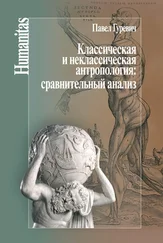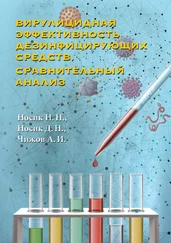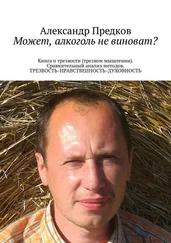Said Amir Arjornand, «Plea for an Alternative View of Revolution», Contention 2 (Winter 1993): 171–83; Pakulski, «Eastern Europe and 'Legitimacy Crisis'», 272–88; Giuseppe di Palma, «Legitimation from the Top to Civil Society: Politico–Cultural Change in Eastern Europe», World Politics 44 (October 1991): 49–80; Daniel Chirot, «What Happened in Eastern Europe in 1989?» in The Crisis of Leninism and the Decline of the Left: The Revolutions of 1989, ed. Daniel Chirot (Seattle: University of Washington Press, 1991), 3—32; Janina Frentzel–Zagorska, «The Dominant Political Culture in Poland», Politics 20 (May 1985): 82–98; Marek Ziolkoswki, «Individuals and the Social System: Values, Perceptions, and Behavioral Strategies», Social Research 55 (Spring Summer 1988): 139—77; Ronald Ingelhart and Renata Siemienska, «Changing Values and Political Dissatisfaction in Poland and the West: A Comparative Analysis», Government and Opposition 23 (Autumn 1988): 440—57; Janina Frentzel–Zagorska, «The Dominant Political Culture in Poland», Politics 20 (May 1985): 82–98; Robert J. Shiller, Maxim Boycko, and Vladimir Korobov, «Popular Attitudes toward Free Markets: The Soviet Union and the United States Compared», American Economic Review 81 (June 1991): 385–400; Donald S. Kellermann, Andrew Kohut, and Carol Bowman, The Pulse of Europe: A Survey of Political and Social Values and Attitudes (Washington, DC: Times Mirror Center for the People and the Press, 1991), section IX, Questionnaire, 88—91.
Elizabeth Kiss, «Dem ocracy without Parties? 'Civil Society' in East–Central Europe», Dissent 39 (Spring 1992): 226—31; George Schopflin, «The End of Communism in Eastern Europe», International Affairs 66 (January 1990): 3–16; Andre Gunder Frank, «Revolution in Eastern Europe: Lessons for Democratic Social Movements (and Socialists?)», Third World Quarterly 12 (April 1990): 36–52; Herbert Kitschelt, «The Formation of Party Systems in East Central Europe», Politics and Society 20 (March 1992): 7—50; Steven Fish, «The Emergence of Independent Associations and the Transformation of Russian Political Society», Journal of Communist Studies 7 (September 1991): 299–314; Frederick Stair, «The Third Sector in the Second World», World Development 19 (January 1991): 65–71; David E. Powell, «The Revival of Religion», Current History 90 (October 1991): 328–32; Timur Kuran, «Now Out of Never: The Element of Surprise in the East European Revolution of 1989», World Politics 44 (October 1991): 7–48; Timur Kuran, «The East European Revolution of 1989: Is It Surprising that We Were Surprised?» American Economic Review 81 (May 1991): 120–25; Jeffrey W. Hahn, «Continuity and Change in Russian Political Culture», British Journal of Political Science 21 (October 1991): 393–421; David S. Mason and Svetlana Sydorenko, «Perestroyka, Social Justice, and Soviet Public Opinion», Problems of Communism 39 (November—December 1990): 34—43; Donald S. Kellermann, Andrew Kohut, and Carol Bowman, The Pulse of Europe: A Survey of Political and Social Values and Altitudes (Washington, DC: Times Mirror Center for the People and the Press, 1991), section VIII, Graphs, and section IX, Questionnaire, 28—45.
Russell Bova, «Political Dynamics of the Post–Communist Transition: A Comparative Perspective», World Politics 44 (October 1991): 113—38; Walter Laquer, «The Empire Strikes Out», New Republic 205 (September 16–23,1991): 24–28; Stephen F. Cohen, «What's Really Happening in Russia?» Nation 254 (March 2, 1992): 259–68; Seweryn Bialer, «Gorbachev's Program of Change: Sources, Significance, Prospects», Political Science Quarterly 103 (Fall 1988): 403–60; Basile Kerblay, Gorbachev's Russia (New York: Pantheon Books, 1989); David Mandel, «Actually Existing Privatization: An Interview with Yurii Marenich», Monthly Review 43 (March 1992): 20—28; Patrick Flaherty, «Privatization and the Soviet Economy», Monthly Review 43 (January 1992): 1—14; Christopher Young, «The Strategy of Political Liberalization: A Comparative View of Gorbachev's Reforms», World Politics 45 (October 1992): 47–65.
Kiss, «Democracy without Parties?» 226–31; Schopflin, «The End of Communism in Eastern Europe», 3—16; Kitschelt, «The Formation of Party Systems in East Central Europe», 7—50; Fish, «The Emergence of Independent Associations and the Transformation of Russian Political Society», 299—314; Ekiert, «Democratization Processes in East Central Europe», 285–313; Medvedev, «Politics after the Coup», 91–109; Boris Kagarlitsky, «Preface to Chaos», New Politics 3 (Winter 1991): 174–83; George W. Breslauer, «Bursting the Dams: Politics and Society in the USSR since the Coup», Problems of Communism 40 (November–December 1991): 2—12; Aurel Braun and Richard B. Day, «Gorbachevian Contradictions», Problems of Communism 39 (May–June 1990): 36–50; Anders Aslund, «The Soviet Economy after the Coup», Problems of Communism 40 (November–December 1991): 44—52; Stephen White, «Russia's Experiment with Democracy», Current History 91 (October 1992): 310—13; Angus Maddison, The World Economy in the 20th Century (Paris: Development Centre of the Organization for Economic Cooperation and Development, 1989), 36; Ellen Comisso, «Political Coalitions, Economic Choices», Journal of International Affairs 45 (Summer 1991): 1–29; Ellen Comisso, «Property Rights, Liberalism, and the Transition from 'Actually Existing' Socialism», East European Politics and Societies 5 (Winter 1991): 162–88; Pawel Bozyk, «The Transformation of East Central European Economies: A Critical Assessment», Studies in Comparative Communism 25 (September 1992): 257–73; James Petras, «Eastern Europe: Restoration and Crises», Journal of Contemporary Asia 21, no. 3 (1991): 301–26; Andre Gunder Frank, «Economic Ironies in Europe: A World Economic Interpretation of East–West European Politics», International Social Science JournalAA (February 1992): 41–56; Albert Bergesen, «Communism's Collapse: A World–System Explanation», Journal of Political and Military Sociology 20 (Summer 1992): 133—51; Roberto P. Korzeniewicz and Kimberley Awbrey, «Democratic Transitions and the Semiperiphery of the World–Economy», Sociological Forum 7 (December 1992): 609–40; Barbara A. Misztal, «Must Eastern Europe Follow the Latin American Way?» European Journal of Sociology, 34, no. 1 (1992); 151–79; Thomas E. Skidmore, «Is Latin America the Future of Eastern Europe? Axes of Comparison», Problems of Communism 41 (May–June 1992): 45–48; Laurence Whitehead, «The Alternatives to 'Liberal Democracy': A Latin American Perspective», Political Studies 40, Special Issue (1992); 146–59.
Peter H. Smith, «Crisis and Democracy in Latin America», World Politics 43 (July 1991): 608—34; Evelyne Huber Stephens, «Capitalist Development and Democracy in South America», Politics and Society 17 (September 1980): 281–352; Dietrich Rueschemeyer, Evelyne Huber Stephens, and John D. Stephens, Capitalist Development and Democracy (Chicago: University of Chicago Press, 1992), 155–225, 269–302; Abraham F. Lowenthal, ed., Exporting Democracy: The United States and Latin America (Baltimore, MD: Johns Hopkins University Press, 1991), esp. Abraham F. Lowenthal, «The United States and Latin American Democracy: Learning from History», 243–65.
Читать дальше

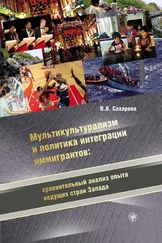

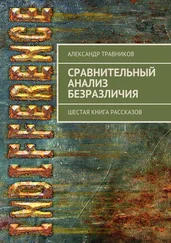
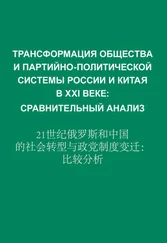
![Карен Степанян - Фабрика лжи [Литература, искусство, культура-борьба идей, мировоззрений, политических систем]](/books/419018/karen-stepanyan-fabrika-lzhi-literatura-iskusstvo-kultura-borba-idej-mirovozzrenij-politicheskih-sistem-thumb.webp)
